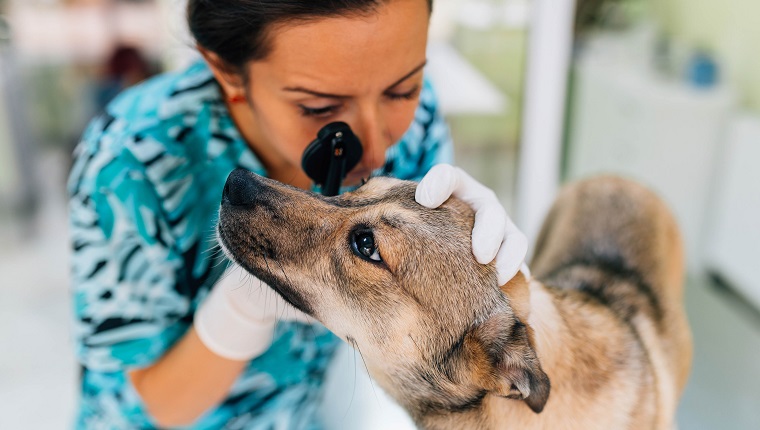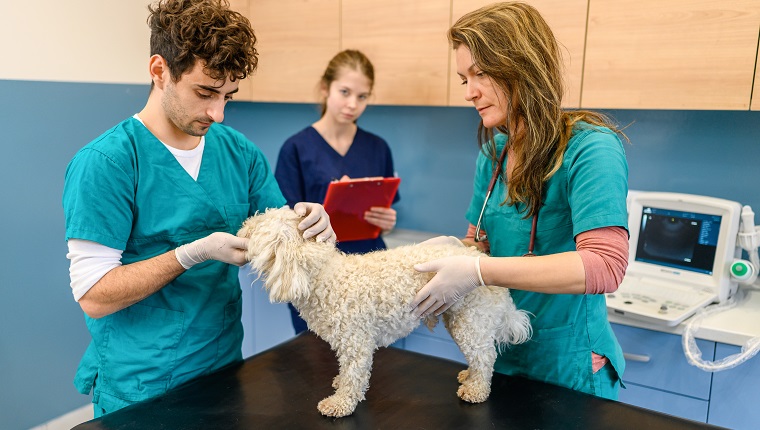Corneal degeneration in dogs is a medical condition that affects a dog’s eyes. It occurs when calcium or lipid deposits become present in the eye layer beneath the cornea. Lipids are molecules that are fat soluble.
The condition is often caused by a trauma. It seems that the Miniature Schnauzer breed of dog is particularly at risk of developing the condition.
If you see signs that your dog suffers from eye issues, then you must consult your veterinarian for a proper diagnosis and advice. Here’s what you should know about the symptoms, causes, and treatments of corneal degeneration in dogs.
Symptoms Of Corneal Degeneration In Dogs
Corneal degeneration in dogs can bring on symptoms that affect a dog’s cornea. Some of the most frequently seen symptoms include:
- Opaque white deposits present in the eyes
- Eye pain
- Inflamed cornea
- Scars on the cornea
Causes Of Corneal Degeneration In Dogs

The cause of corneal degeneration in dogs is calcium or cholesterol deposits being present in the cornea. Trauma can often bring on a case, along with high cholesterol.
In general, very old dogs seem to be affected by the condition more than younger dogs, and the Miniature Schnauzer breed specifically seems most predisposed to developing it.
Veterinary Treatments
If you suspect that your dog is developing corneal degeneration, then your veterinarian want to examine your dog’s eyes. Part of this process will likely involve the use of fluorescein stain, which is a type of dye that can highlight problems and issues with the eye.
If the vet confirms their diagnosis, they’ll want to remove any lipid deposits from your dog’s eyes by a process known as corneal scraping. In some cases, vets may consider a process called keratectomy to remove part of the affected cornea.
In general, dogs diagnosed with this condition often benefit from dietary changes, including switching to low fat foods and watching their cholesterol intake. Your vet can help advise on an appropriate diet that will target your dog’s specific nutritional needs.
Has your dog suffered from corneal degeneration? Did your vet recommend any diet changes to treat your pet? Tell us all about it in the comments below.









